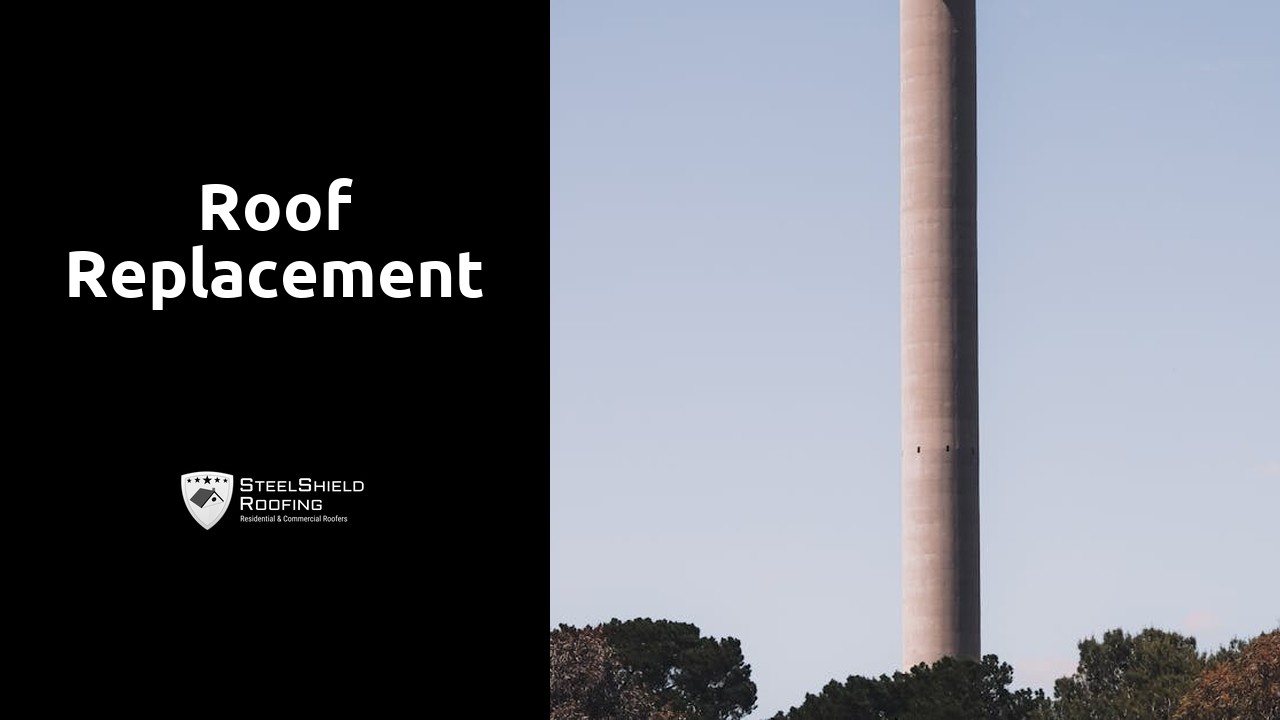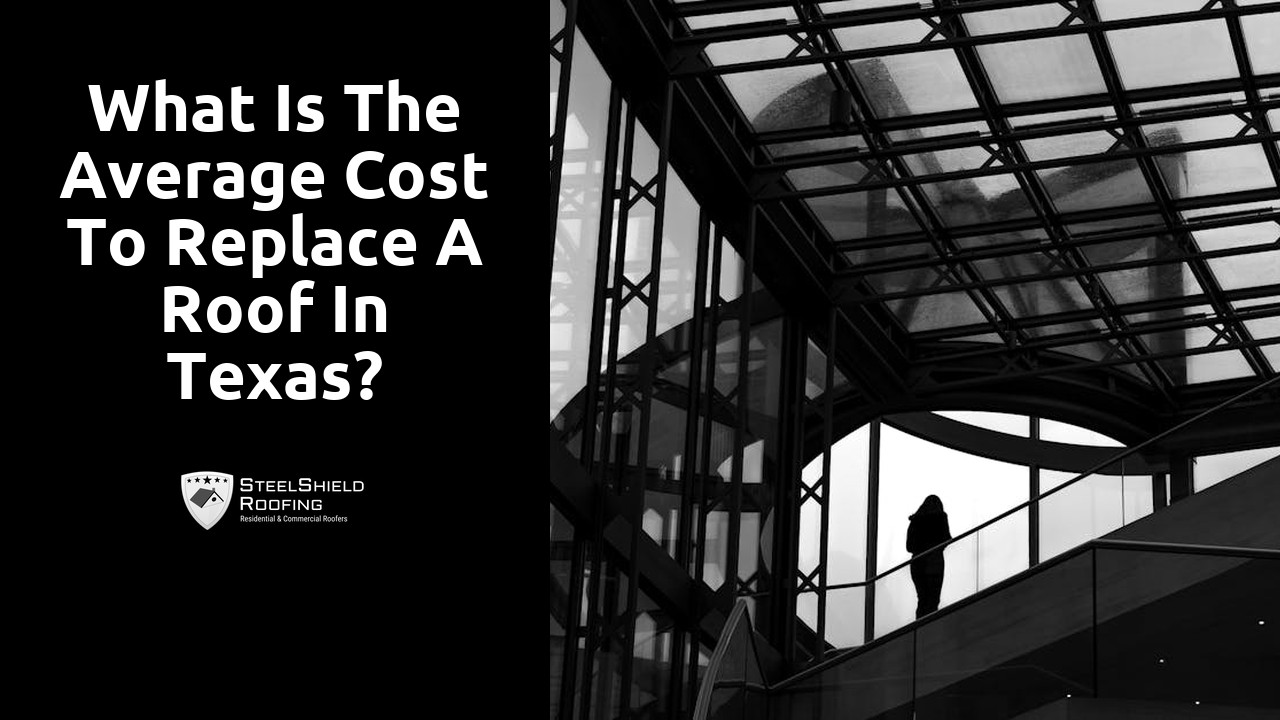
Roof replacement
Table Of Contents
SteelShield Roofing Houston provides top-quality roof replacement services for residential and commercial properties in the Houston area. Our team of skilled professionals is dedicated to ensuring that your roof is replaced efficiently and effectively, using the best materials and techniques available. We understand the importance of having a secure and reliable roof over your head, which is why we strive to deliver exceptional results that are built to last. From start to finish, we work closely with our clients to ensure that their needs and expectations are met, providing peace of mind and protection for their property. Trust SteelShield Roofing Houston for all of your roof replacement needs.
Roof Replacement Permits and Regulations
Before tearing off your old roof and installing a new one, it's crucial to understand the permits and regulations required for a roof replacement project. Local authorities have specific rules in place to ensure the safety and structural integrity of buildings in their jurisdiction. Obtaining the necessary permits before starting work is not only a legal requirement but also a way to prevent potential issues with your project down the line.
Building codes dictate the materials, design specifications, and installation methods that must be followed during a roof replacement. These regulations vary by location and aim to standardize construction practices to protect homeowners and the community at large. By adhering to these codes, you can ensure that your new roof meets quality standards and will provide the protection and longevity you expect.
Here is a great resource for anyone looking to expand on this topic.
Understanding Local Building Codes
Understanding local building codes is crucial when planning for a roof replacement. These regulations dictate the specific requirements and standards that must be followed during construction or renovation to ensure the safety and structural integrity of the building. Failure to comply with local building codes can result in fines, construction delays, or even the need to redo the work, which can be costly and time-consuming.
Local building codes vary by region and can encompass a wide range of criteria, including the types of materials that can be used, the slope and design of the roof, and even factors such as wind resistance and fire protection. It is important to consult with local authorities or a professional contractor familiar with the codes in your area to ensure that your roof replacement project meets all the necessary requirements. By adhering to these regulations, you can not only avoid potential legal issues but also have the peace of mind that your new roof is built to last and withstand the elements effectively.
Importance of Proper Roof Maintenance
Proper roof maintenance is crucial in ensuring the longevity and durability of your home's roof. Regular upkeep not only helps prevent costly repairs down the line but also preserves the overall structural integrity of the building. Neglecting maintenance can lead to leaks, water damage, and even compromised safety for those residing in the house.
One key aspect of proper roof maintenance is conducting regular inspections. By inspecting the roof on a routine basis, homeowners can catch potential issues early on and address them promptly. This proactive approach can help extend the lifespan of the roof, saving money in the long run and providing peace of mind knowing that the home is well-protected from environmental elements.
How Regular Inspections Can Extend Your Roof's Lifespan
Regular roof inspections are crucial to ensuring the longevity and durability of your roof. By conducting inspections at least twice a year, you can proactively identify any potential issues before they escalate into costly repairs or replacements. Inspections allow you to catch problems such as missing shingles, deteriorating flashing, or clogged gutters early on, preventing further damage to your roof structure.
Moreover, regular inspections can help you maintain your roof warranty and insurance coverage. Many roofing warranties require homeowners to perform regular inspections and maintenance to remain valid. By adhering to these requirements, you can safeguard your investment and avoid any disputes with your warranty provider in the event of a claim. In addition, insurance companies may also require proof of regular inspections to process claims related to roof damage, making it essential to document and keep records of all inspections conducted on your roof.
EcoFriendly Roofing Options
When it comes to selecting roofing options that are eco-friendly, homeowners have a variety of choices available to them. Opting for materials that are sustainable and environmentally conscious not only benefits the planet but can also result in cost savings over time. One popular eco-friendly roofing option is the use of solar panels, which harness the power of the sun to generate electricity for your home. Not only can solar panels reduce your carbon footprint, but they can also lead to significant savings on your energy bills.
Another eco-friendly roofing choice to consider is the installation of a green roof. Green roofs are covered with vegetation, which helps to improve air quality, reduce energy costs, and provide natural insulation for your home. By incorporating greenery into your roof design, you can create a beautiful and sustainable living space that benefits both you and the environment.
Benefits of Choosing Solar Panels
Choosing solar panels for your roof can bring a multitude of benefits to your home and the environment. By harnessing the power of the sun, solar panels can significantly reduce your electricity bills, offering long-term savings on your energy costs. In addition to the financial savings, solar panels also help to decrease your carbon footprint, making your home more environmentally friendly.
Another advantage of choosing solar panels is the potential to increase the value of your home. With renewable energy becoming increasingly popular and desirable in the housing market, installing solar panels can make your property more attractive to potential buyers in the future. Not only will you be reaping the benefits of solar energy while you live in your home, but you may also see a return on your investment if you decide to sell your property down the line.
FAQS
Do I need a permit for roof replacement?
Yes, in most cases, you will need a permit for roof replacement. It's important to check with your local building department to ensure you comply with all regulations.
How do I understand the local building codes for roof replacement?
Understanding local building codes for roof replacement can be complex. It's best to consult with a professional roofer or contractor who is familiar with the regulations in your area.
Why is proper roof maintenance important?
Proper roof maintenance is important because it helps extend the lifespan of your roof, prevents costly repairs, and ensures the safety and integrity of your home.
How can regular inspections help extend my roof's lifespan?
Regular inspections can help identify issues early on, such as leaks or damage, allowing you to address them promptly and prevent further damage that could shorten your roof's lifespan.
What are the benefits of choosing eco-friendly roofing options like solar panels?
Eco-friendly roofing options like solar panels can help reduce your carbon footprint, lower your energy bills, and increase the value of your home. Additionally, some areas offer incentives or rebates for installing solar panels.


